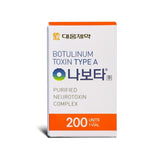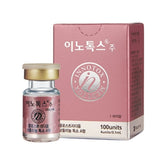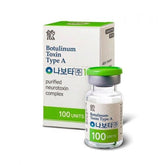The Role of Nutrition in Healthy Hair: Foods for Nourishment

The Role of Nutrition in Healthy Hair: Foods for Nourishment. Healthy, lustrous hair is often seen as a sign of overall well-being and beauty. While genetics and hair care routines play significant roles in maintaining hair health, nutrition is a critical factor that is sometimes overlooked. What you eat can profoundly affect the strength, growth, and shine of your hair. In this blog post, we will explore the role of nutrition in healthy hair and highlight the best foods for hair nourishment.
Understanding the Connection Between Nutrition and Hair Health
Hair is composed of a protein called keratin, and like any other part of the body, it requires a variety of nutrients to grow and remain healthy. Nutritional deficiencies can lead to issues such as hair loss, thinning, and dullness. Ensuring a balanced diet rich in essential vitamins and minerals is key to maintaining healthy hair.
Essential Nutrients for Healthy Hair
To understand the role of nutrition in healthy hair, it's important to know which nutrients are most beneficial for hair growth and maintenance. Here are some of the key nutrients necessary for healthy hair:
- Protein: Hair is primarily made up of protein. Consuming enough protein is essential for hair growth and repair.
- Iron: Iron deficiency is a common cause of hair loss. Iron helps red blood cells carry oxygen to hair follicles.
- Omega-3 Fatty Acids: These essential fats keep your scalp hydrated and support hair growth.
- Vitamins A and C: Vitamin A helps produce sebum, an oily substance that moisturizes the scalp. Vitamin C is necessary for collagen production, which strengthens hair.
- Biotin (Vitamin B7): Biotin is crucial for hair growth and strength.
- Zinc: Zinc plays a role in hair tissue growth and repair and helps keep the oil glands around the follicles working properly.
Foods That Promote Healthy Hair
Including specific foods in your diet can help provide the nutrients your hair needs to thrive. Here are some of the best foods for nourishing your hair:
Eggs
Eggs are an excellent source of protein and biotin, both of which are essential for hair growth. They also contain zinc, selenium, and other hair-healthy nutrients.
How to Include Them: Have eggs for breakfast, include them in salads, or add them to your baking recipes.
Spinach
Spinach is rich in iron, folate, and vitamins A and C, which are all necessary for healthy hair. Iron helps red blood cells carry oxygen to your hair follicles, promoting growth.
How to Include It: Add spinach to smoothies, salads, or sauté it as a side dish.
Salmon
Salmon is packed with omega-3 fatty acids, protein, and vitamin D, all of which contribute to healthy hair. Omega-3s keep your scalp hydrated and support hair growth.
How to Include It: Grill, bake, or broil salmon for a healthy meal. You can also add it to salads or sandwiches.
Sweet Potatoes
Sweet potatoes are a great source of beta-carotene, which the body converts into vitamin A. Vitamin A promotes the production of sebum, which keeps hair healthy and hydrated.
How to Include Them: Roast sweet potatoes, mash them, or use them in soups and stews.
Avocados
Avocados are rich in healthy fats, vitamins E and C, and biotin. Vitamin E helps protect areas of the skin, like the scalp, from oxidative stress and damage.
How to Include Them: Add avocado to salads, smoothies, or use it as a spread on toast.
Nuts and Seeds
Nuts and seeds, such as almonds, walnuts, and flaxseeds, are rich in omega-3 fatty acids, zinc, and vitamin E. These nutrients support hair growth and keep hair shiny.
How to Include Them: Snack on nuts, add them to your breakfast cereal, or include seeds in smoothies and salads.
Berries
Berries are loaded with antioxidants, vitamins, and minerals that promote hair health. Vitamin C in berries aids collagen production and helps absorb iron from the diet.
How to Include Them: Eat berries as a snack, add them to yogurt or oatmeal, or blend them into smoothies.
Greek Yogurt
Greek yogurt is high in protein, vitamin B5 (pantothenic acid), and vitamin D. These nutrients are crucial for hair growth and maintaining the health of your scalp.
How to Include It: Enjoy Greek yogurt as a breakfast option, in smoothies, or as a base for dips.
Beans
Beans are a great plant-based source of protein, iron, zinc, and biotin. They are also low in fat and high in fiber, making them a healthy addition to any diet.
How to Include Them: Add beans to salads, soups, stews, or use them as a meat substitute in various dishes.
Carrots
Carrots are rich in beta-carotene, which the body converts into vitamin A. Vitamin A is essential for maintaining a healthy scalp and promoting hair growth.
How to Include Them: Snack on raw carrots, add them to salads, or incorporate them into your cooking.
Tips for Maximizing Hair Health Through Nutrition
In addition to including these nutrient-rich foods in your diet, consider the following tips to maximize your hair health:
- Stay Hydrated: Drink plenty of water to keep your scalp and hair hydrated.
- Balanced Diet: Ensure your diet is balanced and includes a variety of nutrients.
- Limit Processed Foods: Minimize the intake of processed foods, which can be high in unhealthy fats and sugars.
- Avoid Crash Diets: Extreme dieting can lead to nutrient deficiencies and hair loss.
- Consult a Professional: If you experience significant hair loss, consult a healthcare provider or a nutritionist to address any underlying issues.
The role of nutrition in healthy hair cannot be overstated. A diet rich in essential vitamins, minerals, and proteins is crucial for maintaining strong, vibrant hair. By incorporating nutrient-dense foods like eggs, spinach, salmon, sweet potatoes, avocados, nuts, berries, Greek yogurt, beans, and carrots into your diet, you can support your hair’s health and promote growth.
Understanding the connection between nutrition and hair health empowers you to make informed dietary choices that benefit not only your hair but your overall well-being. Remember, healthy hair starts from within, and what you eat plays a significant role in how your hair looks and feels. With the right nutrition, you can enjoy healthier, shinier, and more resilient hair.





